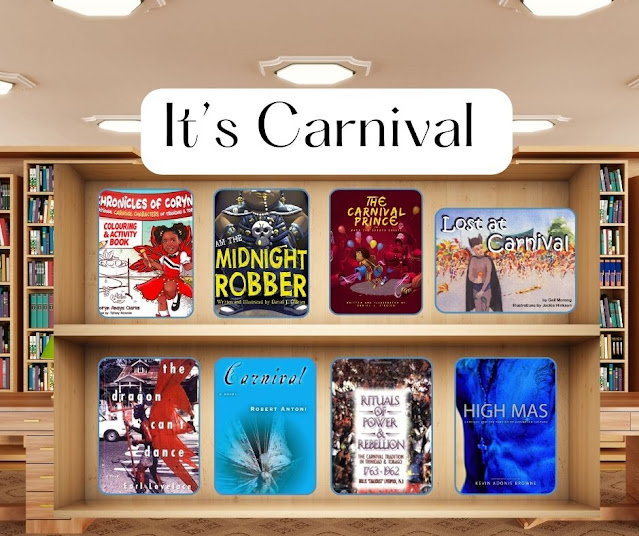Unveiling the Cultural Tapestry: Exploring Trinidad and Tobago's Carnival Through Literature
Trinidad and Tobago's Carnival is not merely a celebration; it's a cultural phenomenon deeply entrenched in the nation's history and societal fabric. Emerging from the ashes of slavery, Carnival in Trinidad and Tobago evolved into a vibrant and dynamic expression of freedom, creativity, and resilience. In this blog post, we delve into the historical significance of Carnival in Trinidad and Tobago's societal development and explore how literature is a powerful tool to educate about this rich cultural heritage.
Historical Importance of Carnival:
To understand the roots of Carnival in Trinidad and Tobago, one must journey back to the days of slavery. With the emancipation of enslaved Africans in 1838, the streets of Trinidad and Tobago became alive with jubilant celebrations. These celebrations manifested newfound freedom, blending African traditions with European influences. Over time, Carnival evolved into a platform for social commentary, resistance, and cultural expression, reflecting the diverse identities of the island nation.
Literature as a Gateway to Understanding:
There exists a variety of literary works that encapsulate the essence of Trinidad and Tobago's Carnival, providing invaluable insights into its cultural significance and historical context. Esteemed authors such as Michael Anthony, V.S. Naipaul, Earl Lovelace, and Hollis Liverpool have adeptly depicted Carnival in their written works, providing readers with a glimpse into the heart and soul of the festivities. In his work, "The Carnivals of T&T from Inception to Year 2000", Michael Anthony takes readers on a comprehensive journey through the history and evolution of Carnival. Earl Lovelace's "The Dragon Can't Dance" masterfully captures the spirit of resistance and resilience inherent in Carnival, while Hollis Liverpool's "Kaiso!: The Trinidad Calypso" delves into the musical traditions that serve as the foundation of Carnival culture.
Elements of Carnival with Literary Components:
Carnival is not just about colourful costumes and lively music; it also encompasses various literary elements that contribute to its richness. Calypso, with its witty and satirical lyrics, serves as a form of social commentary, addressing contemporary issues with humour and insight. Extempo, a form of improvised calypso, showcases the lyrical prowess of its performers, engaging audiences with its spontaneity and wit. Canboulay, rooted in African traditions, combines drumming, storytelling, and dance to celebrate resilience and resistance.
Teaching Carnival Culture Through Books:
Incorporating literature into educational curricula provides students with a deeper understanding of Trinidad and Tobago's Carnival culture. Teachers can use books such as "Chronicles of Coryn: Traditional Carnival Characters of Trinidad and Tobago," "Lost at Carnival" by Gail Morong, and "I am the Midnight Robber" by Daniel O'Brien as valuable resources for teaching about Carnival's history, traditions, and characters.
Furthermore, educators can design book-related activities such as storytelling sessions, character analyses, and creative writing exercises to engage students in exploring Carnival culture. Encouraging students to create their own Carnival-themed stories, poems, or artworks fosters creativity and cultural appreciation.
Trinidad and Tobago's Carnival is a testament to the resilience, creativity, and cultural diversity of its people. Through literature, we can unravel the layers of this vibrant celebration, gaining insights into its historical significance and cultural nuances. By integrating books and related activities into educational settings, we can ensure that future generations continue to appreciate and celebrate the rich tapestry of Trinidad and Tobago's Carnival heritage.




Comments
Post a Comment